Faculty
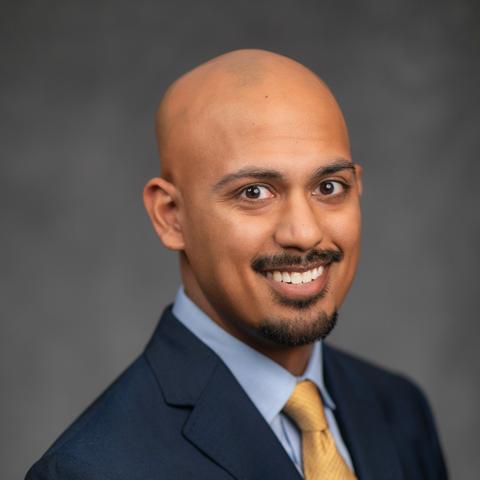
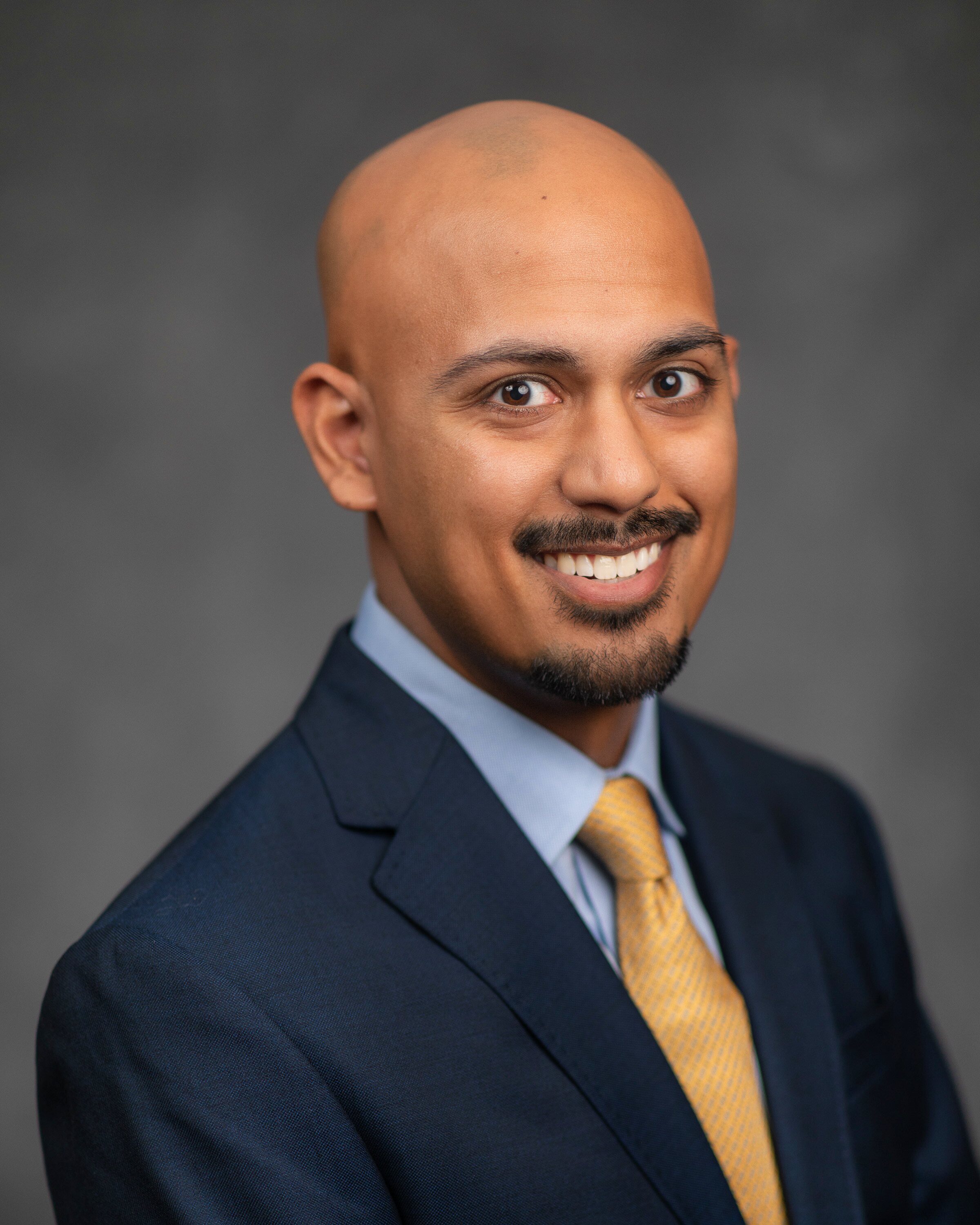
Bio
Dr. Agarwal is an Assistant Professor at the University of Minnesota specializing in endoscopic management of benign prostatic hyperplasia and urinary tract stones. He attended medical school at Indiana University School of Medicine and completed a residency in Urology at the Mayo Clinic in Rochester, MN. He completed a fellowship at Indiana University Department of Urology, with a special emphasis in Holmium Laser Enucleation of the Prostate (HoLEP) and surgeon-guided access for percutaneous nephrolithotomy.Dr. Agarwal's clinical interest is not only in the surgical treatment of enlarged prostate and HoLEP, but being able to offer patients a variety of options and allowing them to pick the best one for their situation. Similarly, he is interested in not only the surgical management of kidney stones, but helping patients find the underlying cause of their stone disease to prevent them from recurring.Dr. Agarwal is engaged in clinical research in enlarged prostate and kidney stones. With the Department of Urology, he strives to continue the rich history of endourology at the University of Minnesota and offer patients the best and innovative treatments.
Contact
Address
420 Delaware St. Se. MMC 394 Minneapolis, MN 55455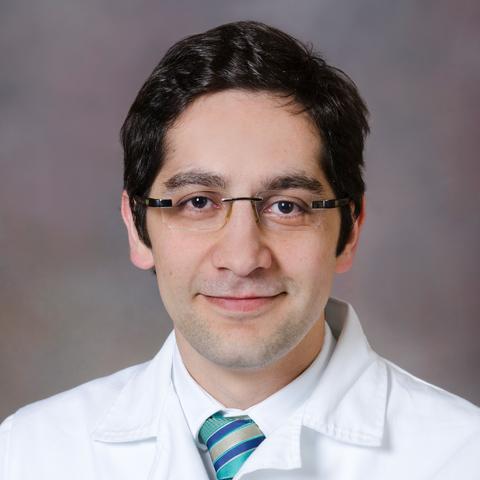
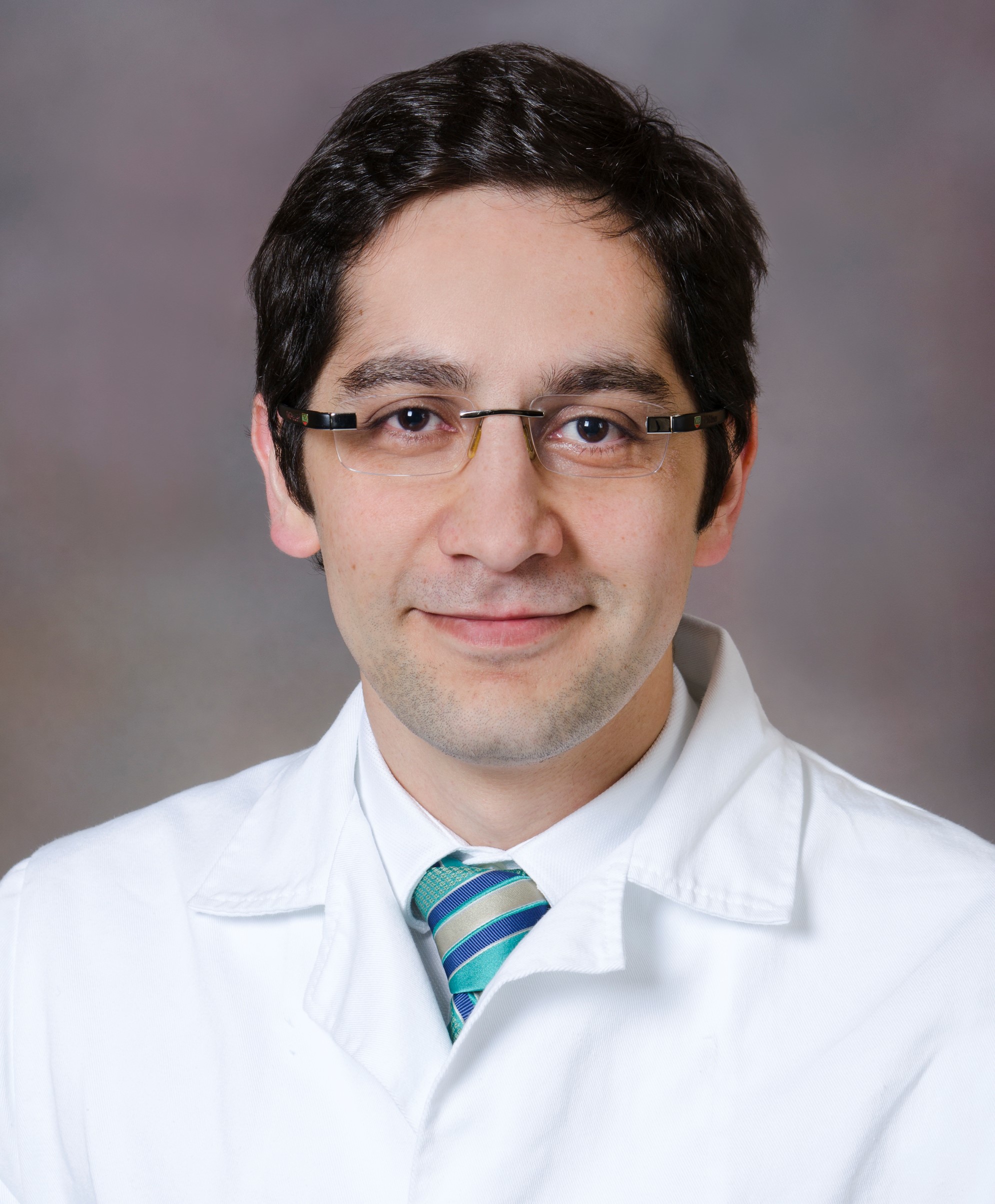
Bio
Dr. Ahmadi attended Tehran University of Medical Sciences for medical school and then completed his residency training in Urologic surgery at Oregon Health and Science University in Portland, Oregon. He recently completed Society of Urologic Oncology fellowship at University of Southern California and joined our department shortly after. He is specialized in open and minimally invasive management of complex genitourinary cancers. His main research interest is tumor marker-based management of bladder and testis cancer.
Meet Dr. Ahmadi
Bio
Dr. Kyle Anderson is interested in a variety of urologic conditions, including laparoscopic treatment of abnormalities including kidney cancer, ureteral pelvic junction obstruction, prostate cancer, adrenal abnormalities. He also specializes in minimally invasive thermotherapy for kidney cancer and kidney stone disease.
When he’s not in clinic, Dr. Anderson is an associate professor of urologic surgery at the University of Minnesota Medical School. His research focuses on the use of thermotherapy (cryotherapy and radiofrequency ablation) for the treatment of kidney cancer.
Administrator Information:
Casey Pratt
Email: cpratt@umn.edu
Phone: 612-626-0697
Clinical Summary
Expertise
- Hematuria (blood in urine)
- Kidney stones
- Polycystic kidney disease
- Kidney cancer
- Prostate cancer
- Ureteral cancer
- Ureteral pelvic junction obstruction
- Ureteral obstruction
Contact
Address
420 Delaware St. Se. MMC 394 Minneapolis, MN 55455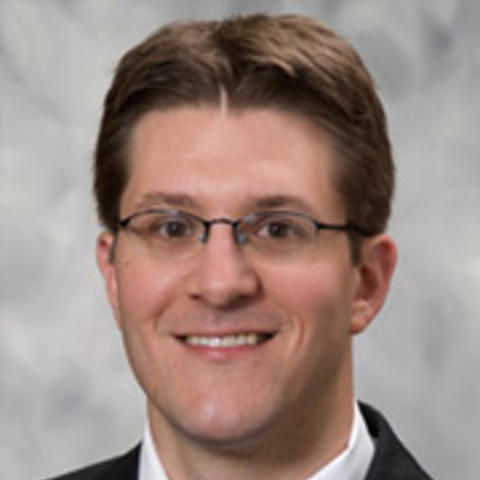
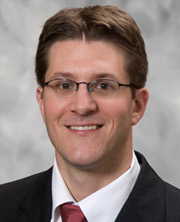
Bio
I treat patients as I would expect to be treated. I enjoy explaining conditions and educating the patients and couples I see. Taking time for education makes for more satisfied patients who also have more successful outcomes. I believe strongly that treatment decisions should be guided by discussion between the physician and patient, and any interventions backed by current scientific evidence. Although physicians can make treatment recommendations, patients must be closely involved in the decision-making process. Because insurance plans cover fertility treatment variably, I am mindful of the financial burden infertility can place on a couple. My goal is to help couples conceive in the most natural, cost-effective manner, always keeping in mind their wishes. I am honest, forthright, caring, and advocate for my patients.
Contact
Address
420 Delaware St. Se. MMC 394 Minneapolis, MN 55455Bio
I believe in providing comprehensive care for common urologic conditions. I am particularly interested in the management of benign urologic conditions which may have a negative impact on quality of life such as kidney stones and enlarged prostate. Kidney stones can be extremely painful, disruptive and commonly require emergency room visits or treatments. I strive to help patients overcome kidney stone episodes in as least disruptive a fashion as possible and identify individualized prevention strategies that help stop them from recurring and causing problems at a later date. Urinary conditions caused by an enlarged prostate can also cause tremendous bother whether it be through sleep disruption, time spent in the bathroom, infections, discomfort or inability to void altogether. I seek individualized, patient centered solutions either through lifestyle management, medication use, or surgery. When surgical intervention is needed I use the most effective and minimally invasive solutions that can be achieved with as little life disruption as possible.
Expertise
Endourology
Kidney Stones
Enlarged Prostate
Benign Prostate Hypertrophy (BPH)
Ureteroscopy
Percutaneous Nephrolithotomy (PCNL)
Extracorporeal Shock Wave Lithotripsy (ESWL)
Holmium Laser Enucleation of the Prostate (HoLEP)
TURP (Transurethral Resection of the Prostate)
Education
Undergrad: University of Michigan
Med School: University of Michigan
Internship: NYU Langone Medical Center
Residency: NYU Langone Medical Center
Fellowship: Indiana University
Awards and Recognitions
Healthgrades Honor Roll
MSP St Paul Magazine Rising Star 2017 - 2022
UMN Physicians Clinical Excellence Honors 2023, 2024
Minnesota Monthly Magazine Top Doctors 2023
Minnesota Monthly Magazine Top Doctors for Women 2023
Societe Internationale Urologie Innovator Award 2019
Research Summary
Dr. Borofsky is the fellowship director for Endourology. His research interests include validation and utilization of new technologies in the management of kidney stone treatment. He has studied the use of smart water bottles to help patients drink more fluid and prevent kidney stone growth. He has also studied the efficacy of new scopes and lasers on the surgical management of kidney stones and enlarged prostates. He has an interest in communication and has validated patient and surgeon communication tools so that optimal care can be delivered across the entire healthcare experience. He has been recognized for his research efforts with numerous honors including receiving the Innovator Award by the international urology group, Societe Internationale Urologie, in 2019.
Publications
Bhojani N, Wollin DA, El Tayeb MM, Scotland KB, Knoedler J, Stern KL, Nguyen DD, Rivera M, Borofsky MS, Canvasser N, Bechis SK, Hsi RS. Prospective Multicenter Evaluation of Pain Before and After Removal of Nonobstructing Renal Calculi: A CoRE Initiative. J Urol. 2024 Mar;211(3):436-444. doi: 10.1097/JU.0000000000003799. Epub 2023 Dec 15. PMID: 38100842.
Sorensen MD, Harper JD, Borofsky MS, Hameed TA, Smoot KJ, Burke BH, Levchak BJ, Williams JC Jr, Bailey MR, Liu Z, Lingeman JE. Removal of Small, Asymptomatic Kidney Stones and Incidence of Relapse. N Engl J Med. 2022 Aug 11;387(6):506-513. doi: 10.1056/NEJMoa2204253. PMID: 35947709; PMCID: PMC9741871.
For more, see: https://pubmed.ncbi.nlm.nih.gov/?sort=date&term=Borofsky+MS&cauthor_id=35947709
Contact
Address
420 Delaware St. Se. MMC 394 Minneapolis, MN 55455Administrative Contact
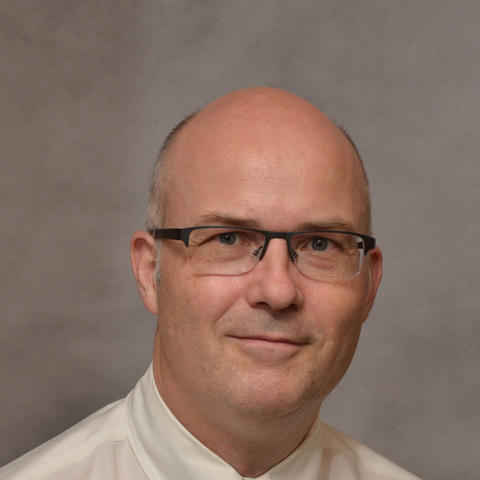
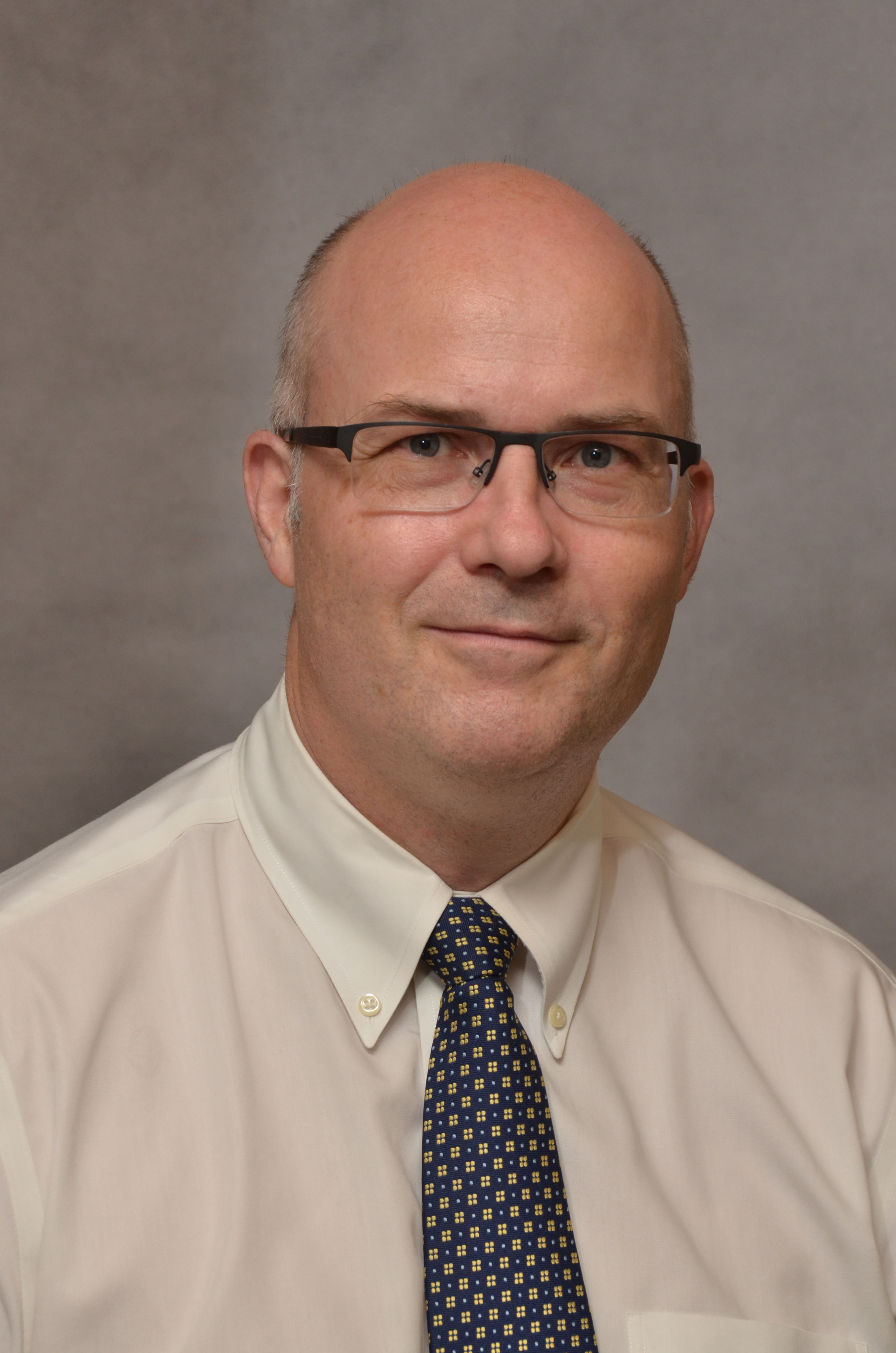
Bio
Dr. Philipp Dahm, MD, MHSc, FACS is Professor of Urology and Vice Chair of Veterans Affairs at the University of Minnesota. He also serves as Director of Research and Education for Surgical Services at the Minneapolis Veterans Administration Medical Center.
A board certified urologist, Dr. Dahm graduated from the University of Heidelberg in Germany before starting residency in general surgery and urology at Duke University in Durham, North Carolina. He subsequently completed an American Foundation for Urological Diseases (AFUD) fellowship at the same institution and earned a Masters degree in Health Sciences in Clinical Research from the Duke Clinical Research Institute. He was an Assistant Professor of Urology at Duke University Medical Center until 2006 when he moved to the University of Florida in Gainesville, where he held the rank of Associate Professor (2006-11) and Professor of Urology (2011-14). During the time, he also held the departmental positions of Director of Clinical Research (2006-14), Associate Residency Program Director (2006-2010) and Residency Program Director (2011-14).
Dr. Dahm is a fellow of the American College of Surgeons and an active member of the American Urologic Association. He has published more than 120 peer-reviewed articles and several book chapters. He is best known for his efforts to promote the principles of evidence-based medicine in urology through research and education. Dr. Dahm serves as the Coordinating Editor of the Cochrane Prostatic Diseases and Urological Cancers Group. He is also the urology lead of the IDEAL Collaboration that strives to improve how surgeons conduct clinical research as well as founding member of the US GRADE Network that promotes transparent methods for guideline development and clinical decision-making.
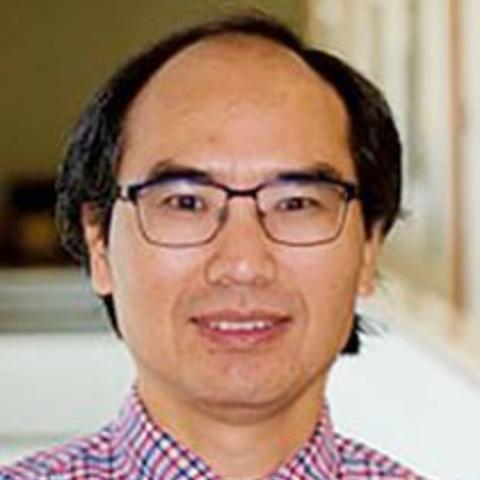
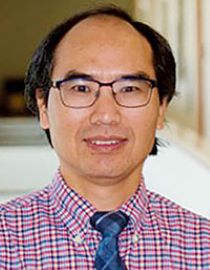
Bio
Dr. Yibin Deng received his M.D. from North Sichuan Medical College and Ph.D. in Pathology from Jilin University Norman Bethune Medical Health Science Center, China. He did his postdoctoral training at New York University and Baylor College of Medicine. In 2005, he joined the Department of Genetics as an Assistant Professor at the University of Texas M.D. Anderson Cancer Center. Dr. Deng was recruited to The Hormel Institute, University of Minnesota as an Assistant Professor in 2009 to lead the Section of Cell Death and Cancer Genetics. In 2019, he was promoted as an I.J. Holton Professor in the Hormel Institute. In 2020, Dr. Deng relocated to The University of Minnesota Medical School as a Professor in the Department of Urology. He is a current member of Masonic Cancer Center and a graduate faculty of M.S. and Ph.D. Programs in Bioinformatics and Computational Biology (BICB) at the University of Minnesota.
Research Summary
Deng laboratory focuses on addressing two fundamental questions of cancer biology: how normal cells become cancer cells, and how to selectively kill cancer cells. The Deng lab has been developing four major areas to study prostate cancer by employing a combination of multiple approaches, including conditional gene knock-out/knock-in, genome editing (CRISPR-Cas9), X-ray crystallography/Cryo-EM, and structure-based virtual screening combined with drug design and chemical synthesis.(1) Discovery of metabolic targets for currently incurable castration-resistant prostate cancer (CRPC) Through genetic and pharmacological studies, Deng laboratory demonstrated for the first time that hexokinase 2 (HK2)-mediated Warburg effect plays an important role in tumor growth of CRPC in vivo. Dr. Deng has been building a strong cross-functional collaboration team comprising medicinal chemists, structural and computational biologists to dissect the function of HK2-translation axis in prostate tumorigenesis and discover HK2-selective inhibitors to block HK2-driven tumor growth. Utilizing genetic screening and cell metabolomics, they have identified a crucial molecular target that switches Warburg effect into the mitochondrial-dependent oxidative phosphorylation (OXPHOS) signaling, which in turn is essential for prostate cancer cell survival and tumor development under tumor microenvironment. Various types of experimental models are being used to determine the function of cancer metabolic networks in prostate tumor initiation, progression and metastasis. (2) Structural and functional understanding of oncogene mRNA translation in prostate tumorigenesisPhosphatase and tensin homolog (PTEN) is a tumor suppressor gene that plays a key role in controlling oncogene mRNA translation through the human translation initiation eIF4E/eIF4G/eIF4A(eIF4F) complex. The Deng lab is interested in deciphering how the eukaryotic eIF4F complex regulates oncogene mRNA translation in prostate tumorigenesis using structural biology methods (X-ray crystallography and Cryo-electron microscopy) coupled with biological studies. The results from these studies will facilitate a structure-based discovery of small-molecule compounds disrupting the assembly of a functional eIF4F complex in prostate cancer cells to selectively block the PTEN loss-driven oncogenic protein synthesis axis and thus inhibit prostate tumor development in vivo.(3) Dissect the role of dysfunctional telomere-initiated immune response in prostate tumorigenesisTelomeres are nucleoprotein complex structures that protect chromosomal ends from being recognized as aberrant damaged DNA. Dysfunctional telomeres could arise either from progressive telomere attrition (telomere shortening) or when components of the telomeric DNA-binding proteins ("shelterin complex") are perturbed (telomere uncapping). The Deng lab has generated a novel in vivo prostate cancer mouse model to study the role of uncapped telomeres in tumorigenesis. Utilizing the genetically engineered mouse models, they have revealed that a dysfunctional telomere-initiated DNA damage response induces an intrinsic cell death signaling in cancer cells with a concurrent activation of innate immune checkpoints extrinsically to remarkably diminish prostate cancer cells. These unexpected studies could provide an effective targeting therapeutic strategy through telomere uncapping-initiated immune response to selectively erase prostate cancer cells.(4) Gain-of-function of mutant p53 in PTEN loss-driven prostate tumorigenesisThe recent comprehensive sequencing studies revealed that the TP53 gene encoding a tumor suppressor protein is mutated in over 40% of metastatic human prostate cancer. Alterations of TP53 in cancer cells occur predominantly through missense mutations, including six "hotspot" mutations carrying most frequently substitutes, which ultimately result in accumulation of a full-length mutant p53 protein.These mutant p53 proteins not only lead to loss of tumor suppressive function of wild-type p53, but also confer "gain-of-function" (GOF) oncogenic activities that enhance tumor progression and metastasis. Interestingly, the TP53 mutation and loss of PTEN co-exist in metastatic prostate cancer. Owing to technical challenges, a mouse model harboring loss of Pten but expression of a mutant p53 does not exist. To circumvent these deficiencies, the Deng lab has been developing prostate cancer mouse models using a combination of a Pten conditional knockout mouse, p53 conditional knock out and a mutant p53 "hot spot" (identified in prostate cancer patients) knock-in mouse model, in which expression of mutant p53 could be conditionally induced while the expression of wild type p53 and/or Pten could be conditionally deleted in a prostate tissue-specific manner. These mouse models would provide a therapeutic model for drug discovery in vivo and faithfully recapitulate the crucial roles that PTEN loss and mutant p53 expression play during prostate tumor initiation, progression, and metastasis in situ.
Contact
Address
3-3135 Cancer and Cardiovascular Research Building 2231 6th St. Se. Minneapolis, MN 55455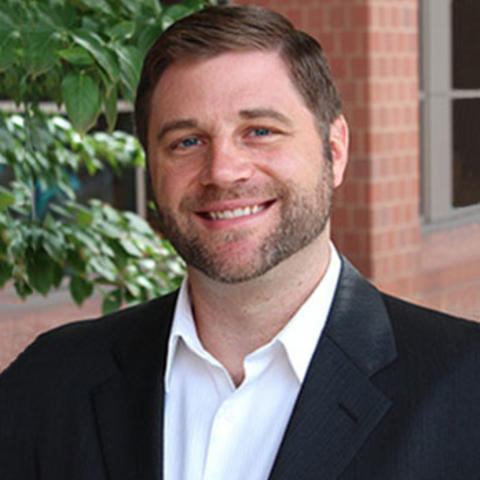
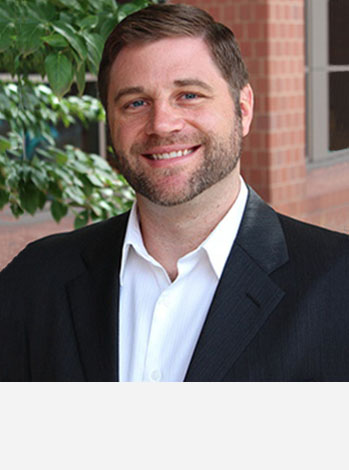
Bio
Dr. Drake is an Associate Professor in the Department of Pharmacology and Urology, a Prostate Cancer Foundation Young Investigator and a Masonic Scholar. He received his B.S. degree from Minnesota State University, Mankato in Biochemistry and Ph.D. degree from the University of Iowa in the Department of Molecular Physiology and Biophysics in the laboratory of Dr. Michael D. Henry. His postdoctoral training was in the lab of Dr. Owen N. Witte at UCLA. Prior to coming to the University of Minnesota in 2018, Dr. Drake held a faculty position at the Rutgers Cancer Institute of New Jersey in the Department of Medicine. Dr. Drake is also Chief Science Officer at Astrin Biosciences focusing on liquid biopsy-derived detection of circulating tumor cells for early detection and precision therapies.
Education
Undergrad: Minnesota State University, Mankato
Grad School: University of Iowa
Awards and Recognitions
- Semmer Fellowship in Prostate Cancer
- Young Investigator Award Spotlight Department of Defense
- Society for Basic Urologic Research (SBUR) Young Investigator Award
- Prostate Cancer Foundation (PCF) Young Investigator Award
- Department of Defense Scientific Highlight Selection
- UCLA MBI Postdoctoral Award for Research Excellence
- PCF-AACR Scholar-in-Training Award
- AACR Scholar-in-Training Award
Research Summary
Research in the Drake Lab focuses on blending basic and translational research approaches to better understand the signaling networks in lethal metastatic castration resistant prostate cancer, and how to more effectively treat patients who are suffering from this disease using rationalized targeted therapies. Previous research from Dr. Drake and others suggest that kinase activation may be a primary mechanism of resistance to current therapies in late stage prostate cancer. Using in vivo primary mouse and human cancer model systems, the Drake Lab investigates what particular kinase signaling pathways are activated that lead to this resistance and how new targeted therapies, such as kinase inhibitors, may perturb these pathways for future clinical utility.In addition, Dr. Drake's lab will also employ phosphoproteomics enrichment technologies coupled to quantitative targeted mass spectrometry to identify the activated kinases and pathways in pre-clinical and clinical tumors for development of predictive biomarkers. The results of this research aim to evaluate single liquid or tissue biopsies from metastatic prostate cancer patients for activated kinase signatures that will lead to targeted therapies in real time.
Publications
- VanDeusen HR, Ramroop JR, Morel KL, Bae SY, Sheahan AV, Sychev Z, Lau NA, Cheng LC, Tan VM, Li Z, Petersen A, Lee JK, Park JW, Yang R, Hwang JH, Coleman I, Witte ON, Morrissey C, Corey E, Nelson PS, Ellis L, Drake JM. Targeting RET Kinase in Neuroendocrine Prostate Cancer. Mol Cancer Res. 2020 Aug;18(8):1176-1188. doi: 10.1158/1541-7786.MCR-19-1245. Epub 2020 May 27. PubMed PMID: 32461304; PubMed Central PMCID: PMC7415621.
- Drake JM, Paull EO, Graham NA, Lee JK, Smith BA, Titz B, Stoyanova T, Faltermeier CM, Uzunangelov V, Carlin DE, Fleming DT, Wong CK, Newton Y, Sudha S, Vashisht AA, Huang J, Wohlschlegel JA, Graeber TG, Witte ON, Stuart JM. Phosphoproteome Integration Reveals Patient-Specific Networks in Prostate Cancer. Cell. 2016 Aug 11;166(4):1041-1054. doi: 10.1016/j.cell.2016.07.007. Epub 2016 Aug 4. PubMed PMID: 27499020; PubMed Central PMCID: PMC4985183.
- White RE 3rd, Bannister M, Day A, Bergom HE, Tan VM, Hwang J, Dang Nguyen H, Drake JM. Saracatinib synergizes with enzalutamide to downregulate AR activity in CRPC. Front Oncol. 2023;13:1210487. doi: 10.3389/fonc.2023.1210487. eCollection 2023. PubMed PMID: 37456235; PubMed Central PMCID: PMC10348659.
- For more, see: https://www.ncbi.nlm.nih.gov/myncbi/1-3MethxfChkb/bibliography/public/
Contact
Address
3-134 Nils Hasselmo Hall312 Church St SE
Minneapolis, MN 55455-0215
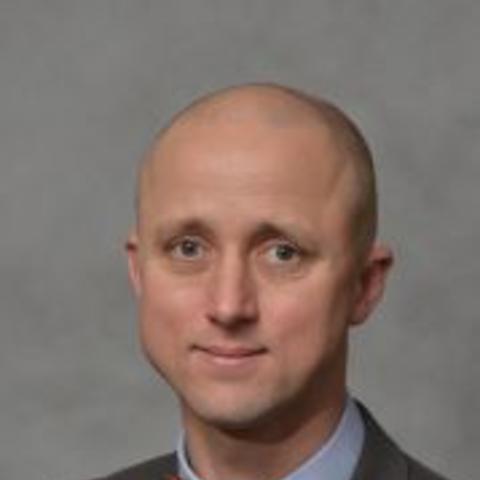
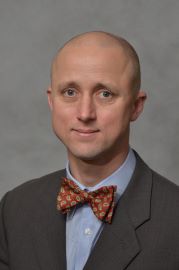
Bio
Dr. Elliott is a Professor, Vice Chair of Urology and Director of Reconstructive Urology at the University of Minnesota. He directs a fellowship in Genitourinary Trauma and Reconstruction and the Urology Clinic at Gillette Lifetime Specialty Healthcare. He received his M.D. at Baylor College of Medicine in Houston, Texas and completed a urology residency and fellowship in Genitourinary Trauma and Reconstruction at the University of California-San Francisco. He earned a Master's of Science in Health Services Research at the University of Minnesota and completed the program in leadership Development for Physicians in Academic Health Centers at Harvard University's School of Public Health.
Dr. Elliott's clinical interests include urethral stricture disease, male urinary incontinence, urinary diversion, male genital reconstruction and neurogenic bladder including the long-term bladder management of people with spina bifida or spinal cord injury. He directs a clinical and research fellowship in Genitourinary Trauma and Reconstruction, with the goal of training future leaders in this field.
Dr. Elliott is board certified in urology and a member of the American Urologic Association. He is a fellow of the American College of Surgeons. He is a member of the Board of Directors and serves as Secretary-Treasurer of the Society of Genitourinary Reconstructive Surgeons, the leading academic and clinical forum for reconstructive urology. In this role, he directs the day-to-day activities of the society and guides the Society's long-term vision.
Dr. Elliott is a founding member of the Trauma and Urinary Reconstructive Network of Surgeons (TURNS). University of Minnesota is one of 8 centers that collaborate in the study of patients treated for a variety of conditions in trauma and reconstructive urology. This network is designed to collect centralized data and provide sophisticated analysis of both surgical and patient reported outcomes from urethral stricture surgery, male incontinence and a variety of other conditions. This type of collaborative research effort is essential to moving forward outcome research that is increasingly important in modern medicine.
Dr. Elliott directs a urologic surgery outcomes research group at the University of Minnesota. His research has been funded by the National Institutes of Health, the Gillette Children's Foundation and the American Cancer Society. His group seeks to improve the delivery of urologic care, particularly in 4 areas: (1) benign prostatic hyperplasia, (2) urethral stricture disease, (3) neurogenic bladder secondary to spina bifida, cerebral palsy or spinal cord injury, and (4) reducing complications of radiation or surgery for the treatment for prostate and cervical cancer.
Meet Dr. Elliott
Research Summary
Understanding the severe urinary adverse effects of pelvic radiotherapyValidating a Claims-Based Method for Assessing Severe Rectal and Urinary Adverse Effects of Radiotherapy
Clinical Summary
- Urethral stricture disease, Urinary diversion including Mitrofanoff creation/revision and bladder augmentation, Urinary fistula repair, Peyronie's disease, Erectile dysfunction, Ureteral strictures, Male stress urinary incontinence, Reconstruction of male external genitalia, surgical reconstruction of genital lymphedema, Paget and rsquos disease, Penile cancer or trapped penis, Genitourinary cancer
Contact
Address
420 Delaware St Se. MMC 394 Minneapolis, MN 55455Administrative Contact
Lee Ann Knight
Email: ltveit@umn.edu
Phone: 612-626-7099
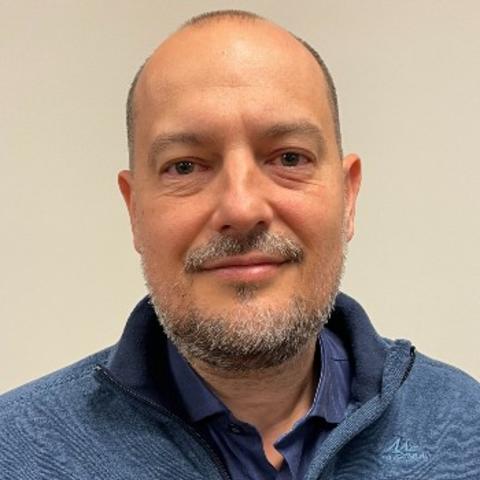
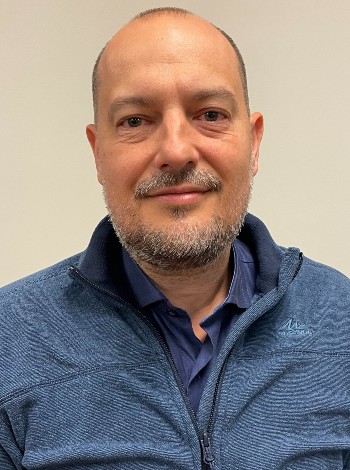
Bio
I am a pediatric urologist from Colombia, where I did med school and my urology residency. Later I moved to Canada to pursue a fellowship in pediatric urology. I had the privilege to be trained in both BC Children’s Hospital and The Hospital for Sick Children in Vancouver and Toronto, respectively. For the last 10 years I have been practicing in my hometown Bucaramanga, Colombia.
Expertise
Pediatric urology
Education
Med School: Autonomous University of Bucaramanga, Bucaramanga, Colombia. January 1997 – November 2002. Date of graduation February 21 of 2003.
Residency: Hospital Universitario San Ignacio – Pontificia Universidad Javeriana, Bogota, Cundinamarca-Colombia
Fellowship:
Pediatric Urology Fellowship at The Hospital for Sick Children – University of Toronto
Pediatric Urology Fellowship at University of British Columbia Children’s Hospital
Grad School: Masters in Medical Education: Universidad de la Sabana, Bogota, Colombia.
Awards and Recognitions
- Professor Pablo Gomez Martinez'Prize for the best scientific work. Aproximación al manejo del ureterocele y los desenlaces clínicos en la población pediátrica: una revisión sistemática. LVII SCU National Congress. Cartagena, Colombia, August, 2022.
- Third Place in Poster Presentation. Interlabial Masses in Pediatrics: A Diagnostic Approach from the Clinical Presentation. VIII Virtual Poster Contest of Clinical Cases. Bucaramanga, Colombia, October, 2020.
- First Place in the Section of Pediatric Urology. Use of Free Graft – Snodgraft- Correction in Complications of Hypospadias in a Single Time. National Congress of Urology. Medellin, Colombia, August, 2008.
Publications
- Learning Pediatric Urology: A Journey of Friendship and Mentorship. Nicolas Fernandez and Victor Figueroa. Dialogues in Pediatric Urology. May 2023.
- Buccal grafts for urethroplasty in pre-pubertal boys: what happens to the neourethra after puberty? Figueroa V, de Jesus LE, Romao RL, Farhat WA, Lorenzo AJ, Pippi Salle J. J Pediatr Urol. 2014 Oct;10(5):850-3.
- Comparative analysis of detorsion alone vs. Detorsion and tunica albuginea decompression ("fasciotomy") with tunica vaginalis flap coverage in the surgical management of prolonged testicular ischemia. Figueroa V, Pippi Salle JL, Braga LH, Romao R, Koyle MA, Bägli DJ, Lorenzo AJ. The Journal of Urology. 188 (4 Suppl), 1417. October 2012.


Bio
Born in Madison Wisconsin, Dr. Cynthia Fok received her undergraduate education in Medical Microbiology and Immunology at the University of Wisconsin-Madison. She then went on to receive her M.D. at University of Wisconsin School of Medicine and Public Health. She finished her urologic residency training in at Loyola University Medical Center in 2010 and then completed an American Board of Urology (ABU) & American Board of Obstetrics & Gynecology (ABOG) accredited fellowship in Female Pelvic Medicine and Reconstructive Surgery at Loyola University Medical Center in 2013. During her fellowship she not only obtained a Masters in Public Health from Loyola University of Chicago, but also was actively involved in research including being awarded the Society of Women in Urology Elizabeth Pickett Research Grant in 2011 for research exploring the relationship between overactive bladder and the genitourinary microbiota. Her clinical and research interests continue to explore pelvic floor dysfunction with interests in pelvic organ prolapse, overactive bladder, urinary incontinence, genitourinary fistulas, urethral stricture disease, and genitourinary microbiota.
Meet Dr. Fok
Administrator Information:
Lee Ann Knight
Email: ltveit@umn.edu
Phone: 612-626-7099
Clinical Summary
Specialties:
- Female Pelvic Medicine and Reconstructive Surgery
- Pelvic Organ Prolapse
- Overactive Bladder
- Genitourinary Fistulas
- Urinary Incontinence
- Urethral Strictures
- Minimally Invasive Surgery
Contact
Address
420 Delaware St. Se. MMC 394 Minneapolis, MN 55455

Bio
As a urologist, I dedicate myself to alleviating kidney stones and urinary difficulties for my patients. I did a fellowship at University of Minnesota in management of complex kidney stones and enlarged prostates using advanced techniques like percutaneous renal surgery and laser enucleation of prostate (Holep). But I understand there's no one-size-fits-all solution. Patient education is paramount to me, so I ensure each person fully grasps their treatment options and what surgery entails. On the research front, I'm particularly interested in leveraging technology to advance stone disease management and BPH. My background in engineering fuels my desire to develop novel solutions and optimize existing techniques.
Expertise
Complex kidney stone disease
Benign prostatic hyperplasia
Education (undergrad, grad school, med school and residencies, as applicable)
Undergrad: University of Pennsylvania (Bioengineering)
Med School: Cleveland Clinic Lerner College of Medicine
Internship: University of Texas Southwestern - Urology
Residency: University of Texas Southwestern - Urology
Fellowship: University of Minnesota - Endourology
Awards and Recognitions
2015 - AUA, Herbert Brendler Medical Student Fellowship (with Dr. Manoj Monga)
2016 - AUA Best Poster Award
2017 - Gold Humanism Honor Society
2019 - AUA Stone Lab Travel Award
Research Summary
I'm particularly interested in leveraging technology to advance stone disease management and treatment of benign prostatic hyperplsia
Publications
Ganesan, Vishnu, et al. "Accuracy of ultrasonography for renal stone detection and size determination: is it good enough for management decisions?." BJU international 119.3 (2017): 464-469.
Ganesan, Vishnu, et al. "C-reactive protein and erythrocyte sedimentation rate predict systemic inflammatory response syndrome after percutaneous nephrolithotomy." Journal of endourology 31.7 (2017): 638-644.
Ganesan, Vishnu, and Margaret S. Pearle. "Artificial intelligence in stone disease." Current opinion in urology 31.4 (2021): 391-396.
Ganesan, Vishnu, et al. "Single-port robotic-assisted simple prostatectomy is associated with decreased post-operative narcotic use in a propensity score matched analysis." Journal of robotic surgery (2021): 1-6.
For more, see: https://pubmed.ncbi.nlm.nih.gov/?term=Ganesan%2C+Vishnu%5BAuthor%5D&sort=date